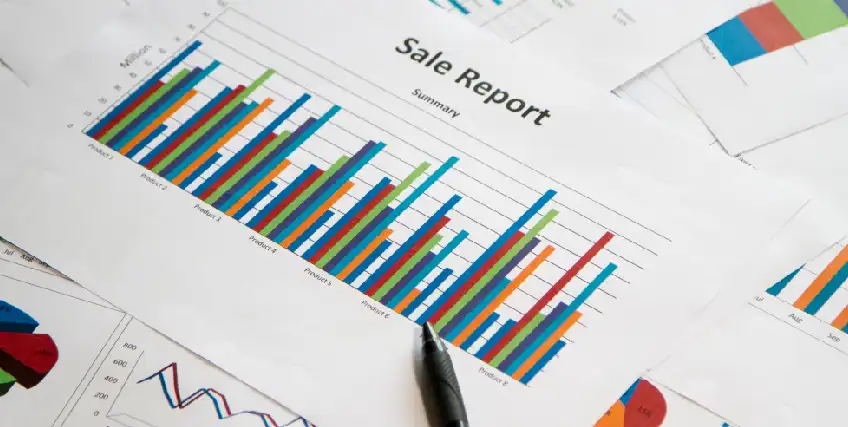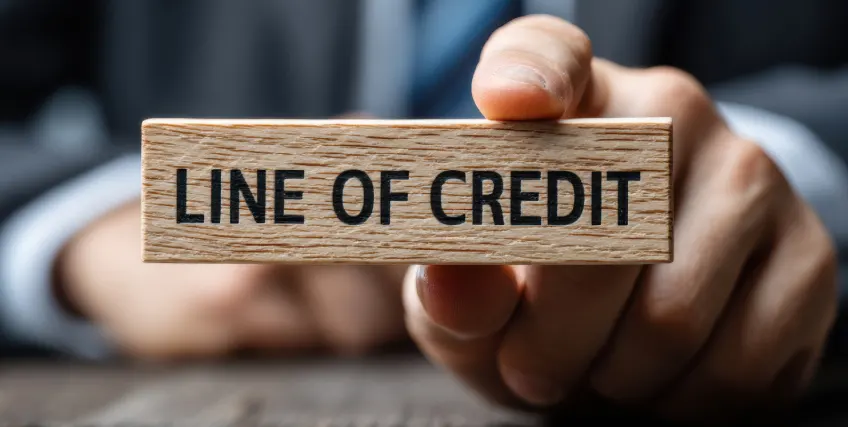Business Owners’ Guide to Building Credit
April 15, 2025 | Last Updated on: April 15, 2025

Article Summary:
- Business owners can build credit through tradelines and a business credit card.
- Payments must be reported to business credit reporting agencies to build business credit.
- Establishing business credit may help you with financing down the line.
How to Build Business Credit
Small business owners often rely on investors or revenue to help expand their company. At some point though, the resources might not be enough. That’s where business financing can help. From small business loans to a business line of credit, various options exist to fit your needs.
However, one major hurdle is not having any business credit. While your personal credit score may still be a factor in approval, building a business credit history may open more options. In this guide, learn tips from the Small Business Administration on how you can build business credit.
Set Up the Right Business Structure
The Small Business Administration (SBA) recommends setting up a business structure that separates you and the business. You can set up an LLC, LLP, or corporation to have a separate business entity. From a legal standpoint, sole proprietors aren’t considered a separate entity.
Having a separate business entity creates boundaries between you and the business. So, when you need to apply for financing, it can be attached to the business entity instead of you as an individual.
Get a Federal Employer Tax I.D. Number (EIN)
An employer identification number can help establish your business as a separate entity. It’s used as a tax I.D. for businesses, similar to a Social Security Number for individuals. You can get an EIN through the Internal Revenue Service (IRS) for free. The process takes about 15 minutes.
The IRS states that if you’re creating a separate legal entity such as an LLC, you need to form your business structure through your state first. Once that’s taken care of, you can apply for an EIN.
Having an EIN can help you:
- Open a business bank account
- Hire employees
- File business tax returns
An EIN creates separation between you and your business, helping legitimize it. Having the right business entity and EIN makes building business credit easier, so not everything goes through your personal credit score.
Register with the Business Credit Reporting Agencies
To effectively build business credit, you need to report your activity to the business credit bureaus. The top ones are:
- Dun & Bradstreet
- Experian
- Equifax
You also want to obtain a D‑U‑N‑S Number, which refers to a Data Universal Numbering System. It’s a nine-digit number from Dun & Bradstreet that helps track credit activity. Other companies or agencies may also be able to use the number to verify your business.
Getting a D-U-N-S Number doesn’t cost anything if you can wait up to 30 days to receive it. You can pay a fee and receive your D-U-N-S Number within eight days.
Open a Separate Business Bank Account
Doing so can help you build business credit. For example, paying off a business credit card with funds from your business bank account. This shows you have separate financial entities for your business. When you make payments on time, you can establish and build up your business payment history.
Establish Tradelines with Vendors and Suppliers
One way to build business credit is to establish tradelines with vendors and suppliers. If you work with other companies frequently, set up accounts and ensure the credit activity is reported to the business credit reporting agencies.
Taking this step can help establish a business credit history. That eventually turns into a business credit report and after some time, a business credit score. After building a positive payment history and strong relationships with vendors, these vendors may also act as trade references down the line if you apply for other types of credit.
Apply for Business Credit Cards
It may take some time to build up your business credit to get approved for a small business loan. An easier way to start establishing a business credit history is to apply for business credit cards.
A business credit card can help you with short-term financing needs. Instead of paying right away, you can buy some time with a credit card until your payment due date. If you pay what you charge in full, you can build a positive payment history and may be able to manage your cash flow better.
On the other hand, if you don’t pay off the balance in full, you could end up paying much more due to sky-high interest rates typically associated with credit cards. Be aware some business credit cards may come with an annual fee, especially if you’re looking to earn rewards.
The easiest business credit card to get with no annual fee is likely a secured business credit card where you put down a deposit.
Review Your Business Credit Reports and Credit Score
Lenders look at the financial health of a business when deciding whether or not to extend any credit. Establishing business credit can show you’re a good investment and you have the tools and resources to manage a loan or credit.
After setting up different credit accounts that report to the bureaus, regularly check your business credit report. Ensure all information in your credit file is up-to-date and there are no errors.
If errors are present, contact each credit agency to rectify the mistake. Your credit report can help generate a business credit score, which is typically from 0 to 100, though various scoring models exist. For example, a PAYDEX® Score or FICO Small Business Scoring Service (SBSS).
A higher business credit score shows your level of creditworthiness. A lower business credit score can signify you may be at risk. Lenders use these numbers to determine how likely you are to repay what you borrow and how you manage credit. Payment history and credit utilization are significant factors that can impact both your personal and business credit score.
Even if you take steps to build business credit, some lenders may still review your personal credit score. Additionally, some lenders may also require a personal guarantee from applicants so they’re on the hook for repayment.
Final Thoughts
Whether you’re a startup or a new business or have years of experience under your belt, it’s never too late to start building business credit. Taking steps to establish a business credit history and improve your credit score can come in handy if and when you need financing. So, if you have hard times or want to invest in your business, you have options to choose from.
FAQs about Business Credit
What is the Fastest Way to Build Business Credit?
If you want to build business credit, apply for business credit cards and set up tradelines with various vendors. Ensure the credit card issuer and vendors report to the business credit reporting agencies.
Can I Use My EIN to Get a Credit Card?
You can use your employer identification number (EIN) to get a business credit card. Using your EIN can help you establish business credit.
What Business Credit Score Do You Start With?
If you don’t have any business credit accounts, you may not have enough history to have a business credit score. Once you do have a business credit score, most are between 0 and 100.
What is the Easiest Business Credit Card to Get?
Getting a secured business credit card may be easier to qualify for as you submit a security deposit.
Does Your EIN Have a Credit Score?
Your employer identification number can help you build a business credit score. To do so, you need to have credit lines reported to the business credit bureaus.




